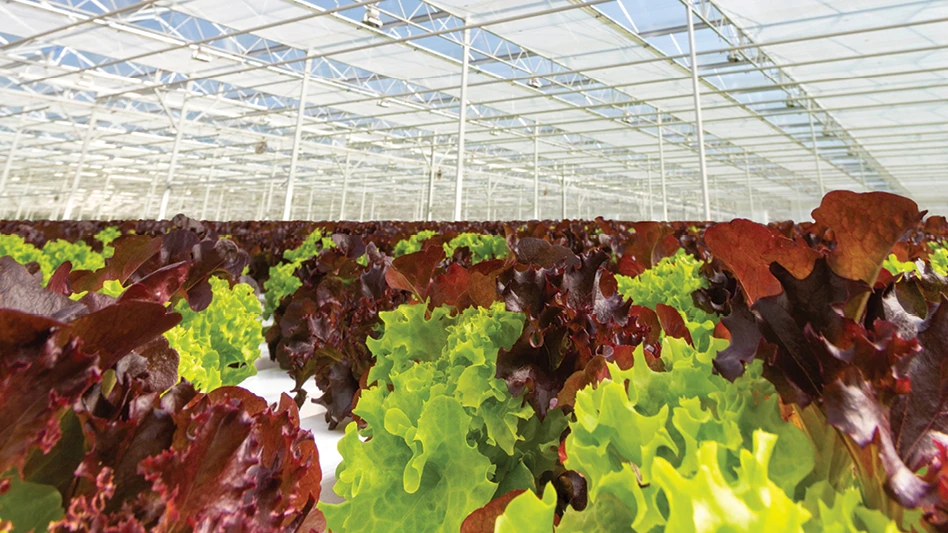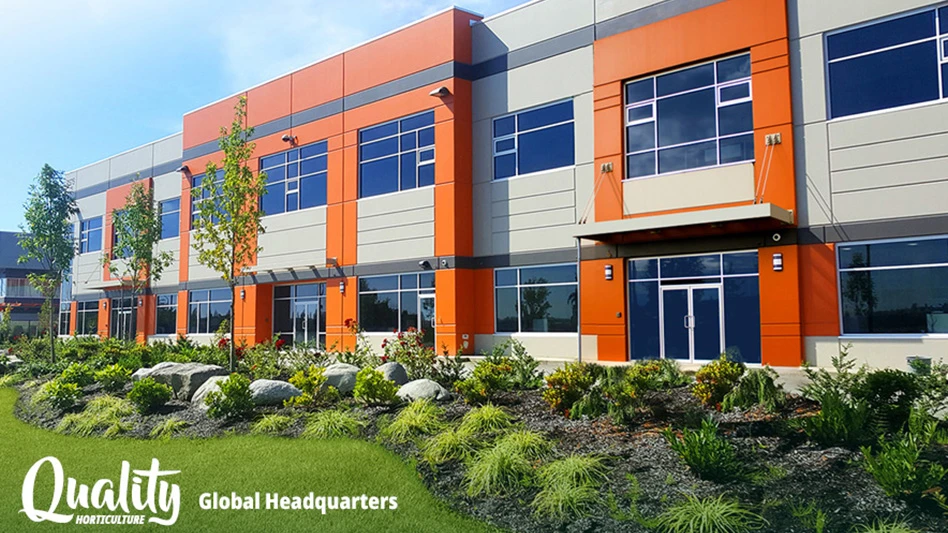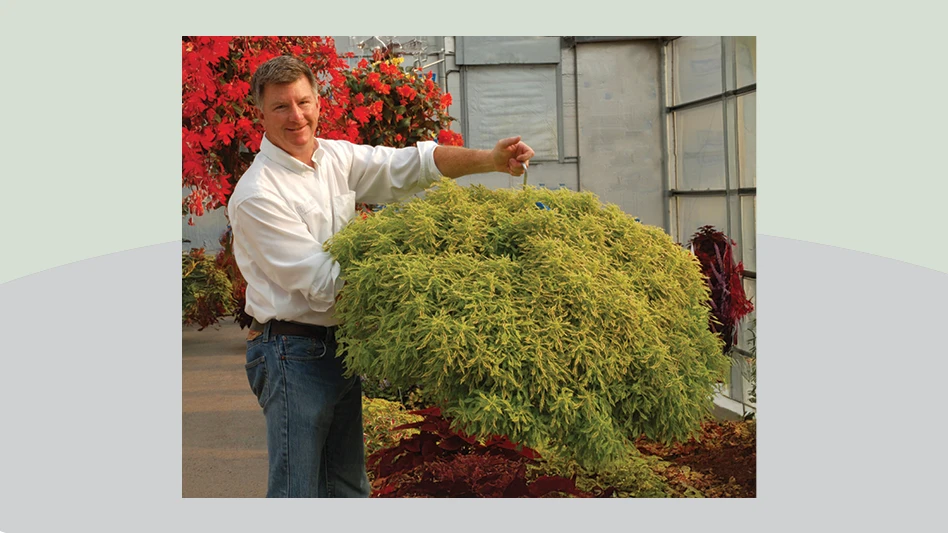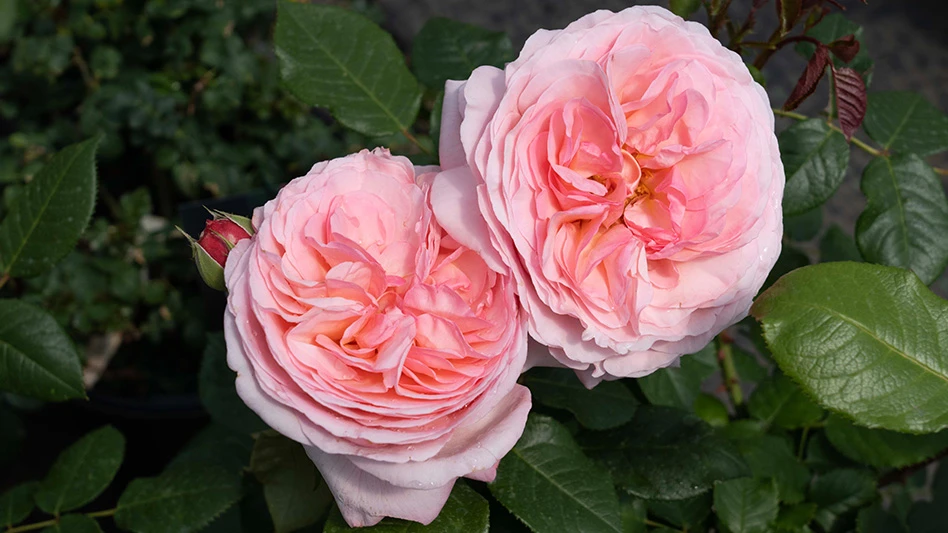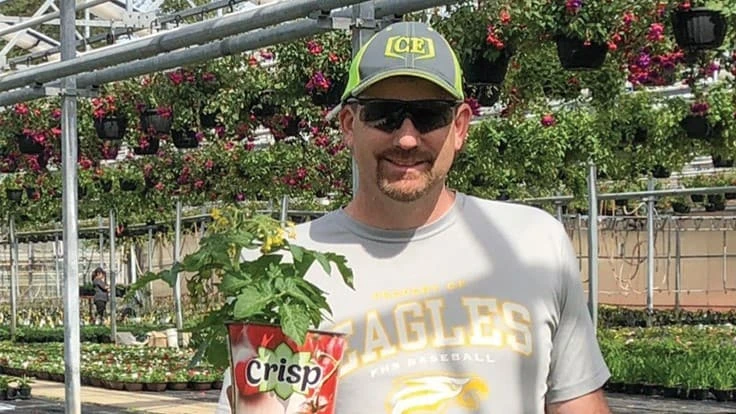

Over his nearly 30-year career at Van Wingerden Greenhouses, Dean Oostra has played a role in every phase of plant production—from planning to growing to shipping. With this comprehensive perspective of production, he has helped introduce cutting-edge growing methods and programs to keep operations running more efficiently.
In his dual role as head grower and production manager, Oostra’s challenge is not just to produce healthy plants for wholesale and retail clients—but to “figure out how to do it and still be profitable,” he says. “Profit margins are so slim nowadays, and with the rate of employee turnover and minimum wage going up, you have to be as lean as possible to be efficient.”
Here’s how Oostra maximizes his small team by leveraging the right growing tools and techniques.
Planning ahead
Oostra joined Van Wingerden Greenhouses in September 1992. By the following March, he was managing the shipping department—a position he held for 12 years before moving over to work on growing. While working under the previous head grower, Oostra also performed the role of operations manager, which entailed working with the sales team to develop annual production plans.
Since becoming head grower and production manager in 2016, Oostra says his previous experience has helped him plan ahead as a grower. He knew firsthand what the shipping department had to deal with, like last-minute watering and scouting for pests while picking plants for orders.
Now, he says, “we’re looking ahead and making adjustments for the product going out. By seeing the daily pick list the day before, we know what’s going out tomorrow, [so we can] make sure we have proper moisture and check for bugs [so the shipping department] can pick it up and not have to worry about that. We’ve cut down picking time for our shipping department just by looking forward.”

Blending tech and touch
Oostra oversees 10 acres of greenhouse facilities at Van Wingerden’s main location in Blaine, Washington, which includes tissue culture, plug, liner, and finished plant production. About once a week, he also visits the operation’s other 4-acre facility.
To cut down on travel time between the two sites, Oostra stays in constant contact with the other site’s grower, Steve Van Wingerden. “We’re always communicating back and forth, and even Facetiming if we have to,” he says.
Modern technology makes real-time team communication much easier for Oostra, who oversees three growers at the main facility. He starts every day by walking through the greenhouse and making notes for his team’s to-do list, which he sends via group text to keep everyone on the same page.
During his morning walkthrough, Oostra also carries a soil sampling probe that collects EC, temperature, and moisture levels and then transmits the data to his cell phone. Meanwhile, environmental controls, automated irrigation, and supplemental LED lighting make it easy to manipulate growing conditions inside the greenhouse.
“Growing now is so user-friendly,” he says. “You just have to use the tools you’ve been given to make better judgements.”

Yet even with all this information at their fingertips, Oostra reminds his growers that technology can’t replace the physical signals that plants send. He still teaches his team to flip pots over to get a closer look at moisture levels and gives them lessons in “reading leaves.”
“If you look at the leaves, an active leaf is going to point up, so then you want to slow it down with PGRs,” he says. “A level leaf is easily growing and getting the right moisture. And a leaf that’s cupping downward has way too much PGR, so now you’ve got to push it a little bit.”
Passing down knowledge
Through the years, Oostra has absorbed knowledge from peers and colleagues across the country. Whether he’s calling his predecessor for advice, asking questions to a vendor rep, posting on a Facebook group or sending a request through Van Wingerden’s widespread family network of industry experts, Oostra takes a team approach to growing.
“The willingness and openness of [growers to help each other] is so much greater than it used to be when I first started in the industry,” he says. “Transferring this knowledge to future growers [is key to our success].”
Just as plants respond differently to various inputs, Oostra’s growing approach evolves as new insights are added. By weaving together personal experience along with the advice of others, Oostra says growers can continue to hone their methods as tools and technologies advance.
“Growing is like a puzzle,” he says. “You’re going to do research. You’re going to ask your peers. You’re going to bounce ideas off other people. But at the end of the day, you’re going to take all these pieces and put them together to do what works best for you.”

Explore the July 2021 Issue
Check out more from this issue and find your next story to read.
Latest from Greenhouse Management
- North Carolina Nursery & Landscape Association announces new executive vice president
- Plant Development Services, Inc. unveils plant varieties debuting in 2025
- Promo kit available to celebrate first National Wave Day on May 3
- Applications now open for American Floral Endowment graduate scholarships
- Endless Summer Hydrangeas celebrates 20 years with community plantings
- Invest in silver
- Garden Center magazine announces dates for 2025 Garden Center Conference & Expo
- USDA launches $2 billion in aid for floriculture growers
